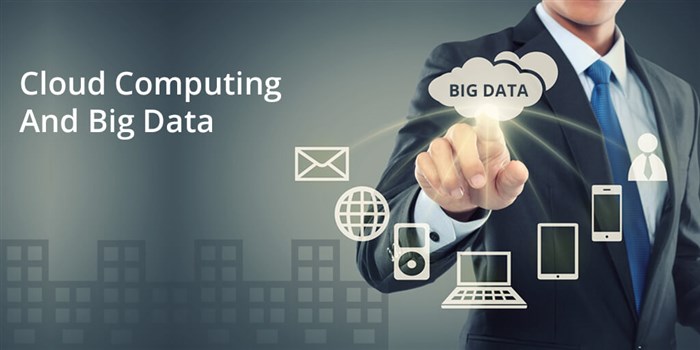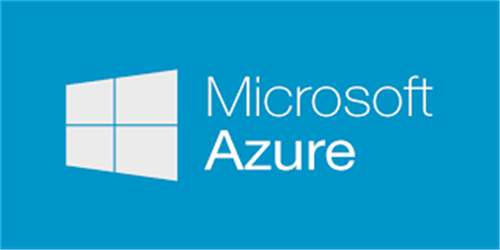
Big Data and cloud computing are among the most buzzworthy IT keywords today. Professionals working in the cloud app development domain have also probably experienced working with these technologies. Both these technologies work in conjunction while other public cloud solutions and services perform big data analyses.
Both these technologies are different at a fundamental level. Big Data deals with the large volumes of data produced and processed every day. Cloud computing is a platform infrastructure that allows users to run programs and solutions without hardware restrictions. However, simplification of both Big Data and cloud computing is the reason behind their large-scale adoption at the enterprise level.
Definitions - Big Data and Cloud Computing:
Big Data:
Big data refers to the large volumes of raw data and datasets generated through hoards of programs and platforms. It encompasses any type of data or dataset that is generated with varying sizes. All this data is generally too large in size to query or peruse using a typical computer system.
Cloud Computing:
Cloud computing refers to the processes involved in operating anything from data to analytics to files on a cloud platform. The cloud is the name for several powerful servers operated by a service provider. Cloud computing allows you to query and view large data sets much faster than a regular computer system can.
Combining both these technologies helps enterprises deliver superior output. Both Big Data and cloud computing are still evolving and are far from fully developed. But leveraging a combination of both these makes for a cost-effective and scalable big data analytics solution.
Looking at the statistics backing it up, it’s safe to say that Big Data and Cloud computing is the right combination if you want a result-driven solution. There are also several challenges they solve together and some new ones they create.
Relationship Between Big Data and Cloud Computing:
Both these technologies are path-breaking individually as well as together. But many businesses are aiming at combining them to enhance the output and explore new avenues. Big data and cloud computing both aim at enhancing business revenues and reducing the initial cost of investment. Big data ensures better business decisions and cloud computing helps manage local software solutions.
Aspects of Big Data:
Big Data is equipped to process and store large volumes of structured, semi-structured and unstructured data for the purpose of data analysis. There are five key aspects of Big Data, summarised as the 5 V’s. These are:
-
Volume: the amount produced
-
Variety: the types of data generated
-
Velocity: the rate of data flow in the system
-
Value: the information contained in the data and its inherent value
-
Veracity: data availability and confidentiality
You May Also Like: big-data-and-cloud-computing
Cloud Computing Services:
Cloud computing provides services for businesses that follow a pay-as-you-go model. Cloud service providers all offer these primary solutions, besides others in their portfolio:
Infrastructure as a Service (IaaS)
The cloud provider gives you the entire infrastructure and the tasks related to maintenance.
Platform as a Service (PaaS)
The cloud service provider provides businesses with resources such as runtime, object storage, queuing and databases among others. However, the consumer is responsible for implementation and configuration.
Software as a Service (SaaS)
Under SaaS, a cloud provider offers every necessary setting and infrastructure, given that the platform’s IaaS is in place.
The Role of Cloud Computing for Big Data:
The relationship between cloud computing and Big Data can be classified according to the type of services:
IaaS in the Public Cloud:
Using this cloud service, Big Data solutions allow users access to unlimited compute power and storage. It’s cost-effective for businesses where cloud providers bear the underlying costs of hardware management.
PaaS in the Private Cloud:
A PaaS cloud platform incorporates Big Data solutions within their offering. Thus, it eliminates any need to deal with the challenges of managing hardware and software elements. This is a huge concern when the data you are dealing with is worth multiple terabytes.
SaaS in the Hybrid Cloud:
Social media data analysis has become a new fundamental parameter while conducting business analyses. For this, a SaaS vendor provides the perfect platform to carry out this analysis.
Relation Between Big Data and Cloud Computing:
Since its inception, cloud technology has enabled ‘as-a-service’ offerings. It abstracts the complexity and challenges via an elastic and scalable self-service application. The functions of Big Data are the same as it abstracts the distributed processing of huge volumes of data from end-users.
Benefits of Big Data Analysis in the Cloud:
1. Better analysis:
As cloud technology evolves, Big Data analysis is more advanced today than before, giving better results and enabling growth. Thus, enterprises choose to carry out Big Data analyses on cloud platforms. Cloud also allows data integration from multiple sources.
2. Less complex infrastructure:
Big Data analysis can be stressful all year round. The data flows in huge volumes at different speeds and of differing types. Traditional infrastructure often can’t keep pace with it. With Cloud Computing, businesses get flexible infrastructure that can be scaled up or down depending on the immediate business requirement. This makes it easier to handle large workloads.
Additional Read: Big Data and Cloud computing: An Ideal Combination
3. Reduced capital expenditure:
Big Data and Cloud computing both deliver value to your business through reduced ownership. The cloud pay-as-you-go model turns capital expenditure (CapEx) into operational expenditure (OpEx). It also allows customers to process Big Data without needing access to large-scale resources. Thus, both these technologies combined significantly drive down business costs and add value to your enterprise offerings.
4. Privacy and security:
Data privacy and security are quickly becoming the top concerns organisations have while dealing with customer data at the enterprise level. When you host a solution or application on the cloud, its limited user control and open environment become threats to your business’ security. Big Data solutions such as Hadoop are open-source apps that use multiple third-party infrastructure and services. Thus, system integrators today add multiple private cloud solutions that are scalable and flexible. This also helps leverage scalable distributed processing.
Additionally, cloud data gets processed and stored in a centralised location which is called the cloud storage server. Additionally, the customer and service provider sign an SLA (service level agreement) to establish trust among themselves. Whenever needed, the cloud service provider also adds advanced security control measures. This allows higher levels of security for Big Data on cloud platforms. It helps solve several issues including protecting data against advanced threats.
How Does a Cloud Service Provider Maintain Data and Storage?
The SLA (service level agreement) that providers and clients sign provides rules to protect
-
Capacity
-
Data
-
Scalability
-
Privacy
-
Security
-
Data growth and storage availability
Meanwhile, Big Data analytics is used in many enterprises to prevent and detect advanced threats from malicious third-party hackers.
The Rise of Virtualisation:
Infrastructure is vital for supporting any application. The ideal platform for Big Data is virtualisation technology. Virtualised Big Data apps provide several benefits that physical infrastructure cannot provide and also simplify Big Data management. Cloud Computing and Big Data are aiming at converging several trends and technologies to ultimately make IT infrastructure as well as any related apps more expendable, dynamic and modular. Therefore, Cloud computing and Big Data projects depend heavily on virtualisation technology.
It’s noteworthy that Big Data and cloud computing are fundamental parts of the digital-first society we live in today. Combining both these technologies enables businesses and IT professionals with limited resources but strong ideas to have a fair shot at success. They also help established enterprises to take all the data they have collected but don’t know what to do with and turn it into actionable data points.
cloud computing allows businesses with flexible and cost-effective ways to access large volumes of datasets and infor mation known as big data. with an effective combination of both these technologies, starting an it enterprise is easier today than ever before. however, there are several factors affecting the success of cloud-based big data analytics. this includes having an experienced service provider and cloud platform and the expertise to use these technologies in an optimised manner.
According to PayScale, Big Data and Cloud computing are among the leading job domains in the IT industry today. If you are looking at learning a new skill or understanding new technology, these are the best options for you today. Give your career the boost it deserves and start learning today. Enrol in a Big Data or Cloud computing course on Koenig and take your professional life to the next level.

min.pngM.jpg)
.pngM.jpg)
(1).pngM.jpg)


COMMENT